Module Three: Pattern vs Surface
Experimenting with Panelling Tools

2D Panelling
Pattern, Triangular
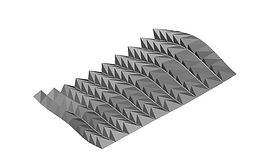
3D Panelling
Pyramid 1

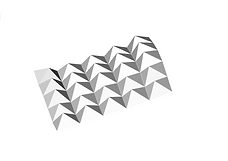
3D Panelling
Wedge
3D Panelling
Pyramid 2
Experimenting with Variable 3D Pattern


Custom Variable with Point Attractors outside of the grid.


Custom Variable with Point Attractors on the corners of the grid.


Custom Variable with Curve Attractor.
Final Model
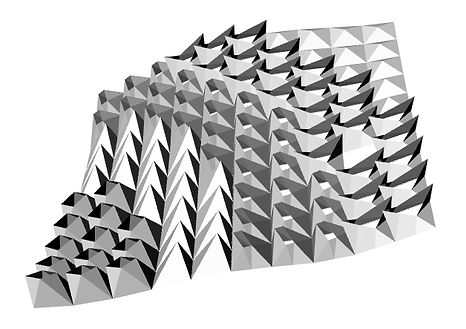

The use of one point attractor and five different modules creates a flow between the modules which can be percieved as symmetrical and balanced. It is inspired by the coral reaf and how it flows in the water, moving in different sections and directions.
Unrolling Shapes in Rhino to Create Templates

Final unrolled modules.

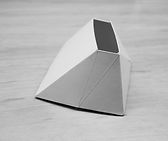


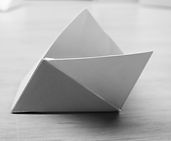
Prototypes of folding panels.
Process
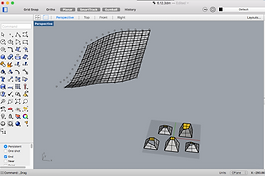
Prototypes unrolled, printed and ready to cut.
Decided on five different modules that work best with my terrain.

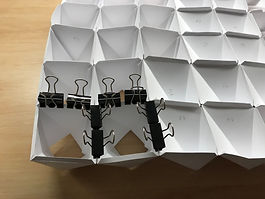
Carefully assembling and gluing the modules together.
Final Model

Perspective photograph to show the way the terrain folds, and how the different modules interact with each other to create the “wavey” flow of movement.

Second perspective photograph to show the back of the terrain.

Angled view to show texture and shadows.
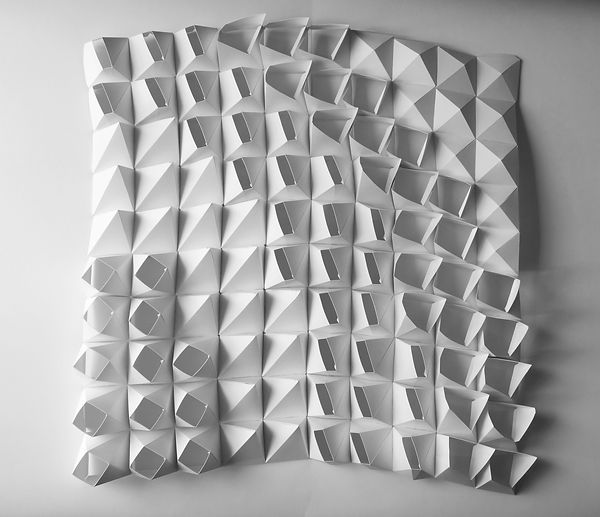
Top View.
The use of one point attractor and five different modules creates a flow between the modules which can be percieved as symmetrical and balanced. It is inspired by the coral reaf and how it flows in the water, moving in different sections and directions.